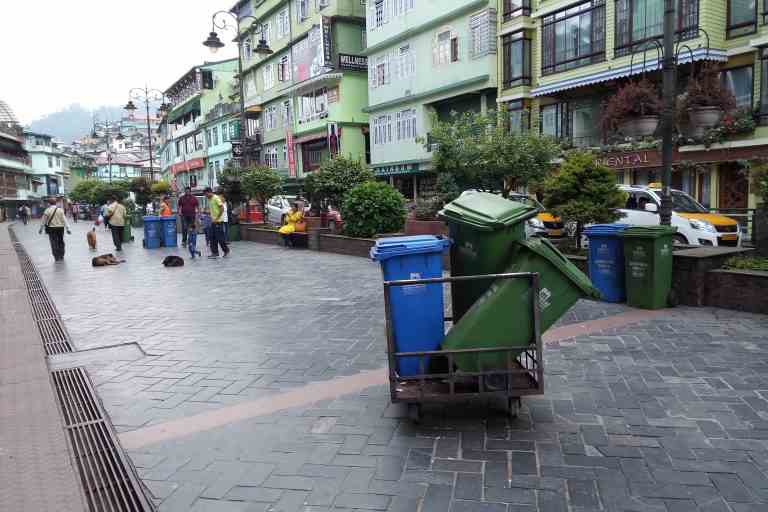Waste Management in Sikkim
Sikkim has been at the forefront of a unique green revolution by their waste management system. Despite its small size and isolation, and the fact that its inhabitants live in a harsh alpine environment, Sikkim has emerged as one of India’s environmental pioneers.
Initiatives
Sikkim, which was the first Indian state to outlaw single-use plastic bags in 1998, is now targeting single-use plastic bottles. Sikkim made two key judgments in 2016. It outlawed the use of pre-packaged drinking water in government buildings and activities.
Second, in an effort to reduce hazardous plastic pollution and address the state’s growing rubbish problem, it banned the use of Styrofoam and thermocol disposable plates and cutlery throughout the state.
Residents of Sikkim are increasingly choosing dishes made of paper, leaves, bagasse, and even areca nut. For activities and meetings, government offices have converted to alternatives such as filtered water, huge reusable dispensers, and reusable water bottles instead of plastic bottles.
To be eligible for any government benefits or to run in village elections, the government declared it obligatory to have a hygienic toilet at home.
Schools are also setting examples to impersonate their elders and the rest of India through recycling and reuse. Every year, people throw away half a ton of garbage, which is made up of everything from eggshells to broken dishes and plastic bags, electronics, etc. After many campaigns and waste management projects, people began to implement the idea of separate waste collection. This makes waste management of Sikkim unique from the other cities.
Also Read: Clean India Healthy India: Importance of Swachh and Swasthya Bharat
Overview on Waste Management in other cities vs Sikkim
Solid Waste Management is a major issue for many Local City Governments in India, where urbanization, industrialization and economic growth have resulted in increased per capita municipal solid waste production. In 2016, this ministry published the Solid Waste Management Regulation, which replaced the MSW regulations, 2000 of which were in effect for 16 years.
With population growth, solid waste management is becoming a major environmental issue and a new challenge, especially in the ecologically sensitive Himalayan region of India. Experts advocate a separate waste management system for the Himalayan states. Before these consolidated national efforts to systematically and collectively manage waste entered the public consciousness, many cities in India had already initiated individual efforts to separate municipal waste based on citizen activism or municipal efforts to build systems.
Also Read: Bio toilet price India and why you it is good replacement for ordinary toilets?
Challenges in front of Waste Management of Sikkim in next few Years
However, with such a huge number of tourists visiting Sikkim, controlling the usage of plastic water bottles is difficult. The government is considering outlawing plastic bottles throughout the state, which would force tourists to rely on filters in hotels, restaurants, and public spaces to receive their drinking water.
When it comes to ecological policies, Sikkim has a lot of firsts. It is the first Indian state to seek to be completely organic, which means that all of Sikkim’s food should be pesticide-free shortly. It is also the first state in India to prohibit open defecation. Urinating in a public place might set you back Rs 500 ($7.50).
Also Read: Beas River – History and interesting facts about this river
Results
Despite the continuous usage of plastic bags, studies undertaken by the Delhi-based Toxics Link and the Pune-based eCoexist NGOs in 2014 and 2018 found that Sikkim has done a good work implementing its green policies.
According to the eCoexist survey, roughly 66% of shops in Sikkim used paper bags or newspapers, while 34% used plastic bags, which included non-woven bags.
